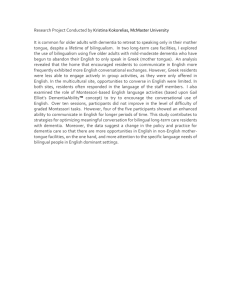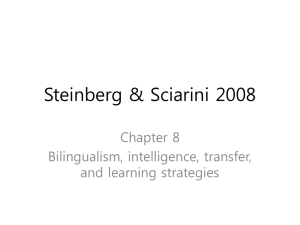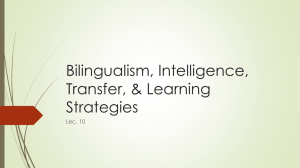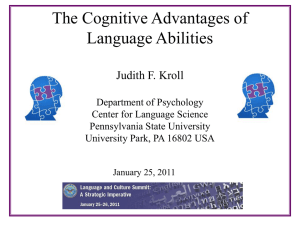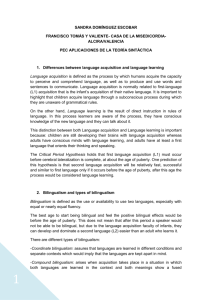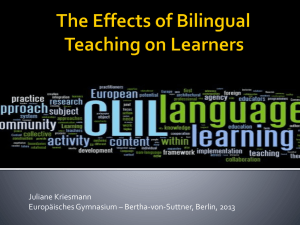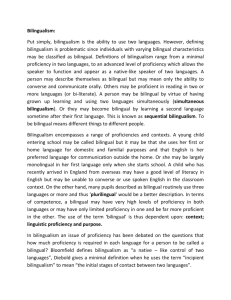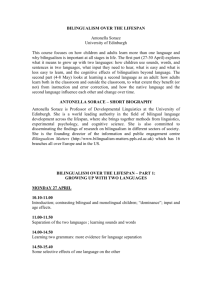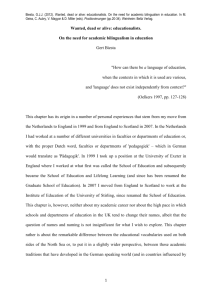Bilingual Brains_PAU_Valencia015
advertisement
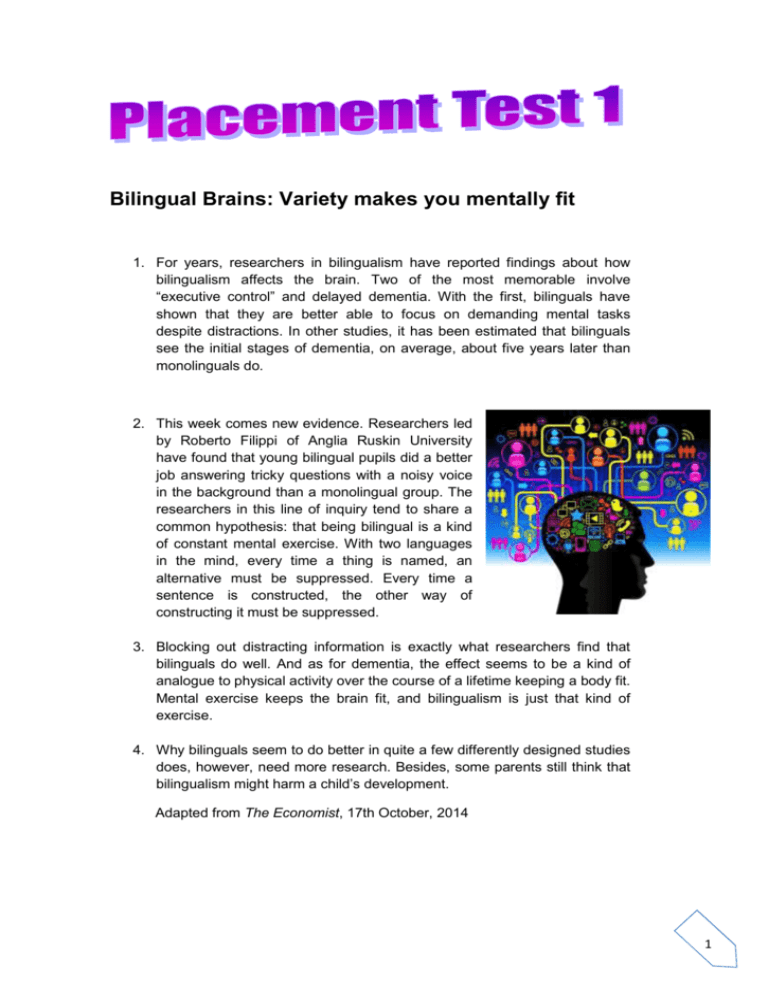
Bilingual Brains: Variety makes you mentally fit 1. For years, researchers in bilingualism have reported findings about how bilingualism affects the brain. Two of the most memorable involve “executive control” and delayed dementia. With the first, bilinguals have shown that they are better able to focus on demanding mental tasks despite distractions. In other studies, it has been estimated that bilinguals see the initial stages of dementia, on average, about five years later than monolinguals do. 2. This week comes new evidence. Researchers led by Roberto Filippi of Anglia Ruskin University have found that young bilingual pupils did a better job answering tricky questions with a noisy voice in the background than a monolingual group. The researchers in this line of inquiry tend to share a common hypothesis: that being bilingual is a kind of constant mental exercise. With two languages in the mind, every time a thing is named, an alternative must be suppressed. Every time a sentence is constructed, the other way of constructing it must be suppressed. 3. Blocking out distracting information is exactly what researchers find that bilinguals do well. And as for dementia, the effect seems to be a kind of analogue to physical activity over the course of a lifetime keeping a body fit. Mental exercise keeps the brain fit, and bilingualism is just that kind of exercise. 4. Why bilinguals seem to do better in quite a few differently designed studies does, however, need more research. Besides, some parents still think that bilingualism might harm a child’s development. Adapted from The Economist, 17th October, 2014 1 A. ARE THE FOLLOWING STATEMENTS TRUE (T) OR FALSE (F)? IDENTIFY THE PART OF THE TEXT THAT SUPPORTS YOUR ANSWER BY COPYING THE EXACT PASSAGE ON THE ANSWER SHEET. (1.5 POINTS: 0.5 EACH) a. Bilingualism may delay mental illnesses. b. Bilingualism keeps the brain fit. c. Parents always think that bilingualism may influence their children’s development. B. CHOOSE THE CORRECT OPTION IN EACH QUESTION BELOW. ONLY ONE CHOICE IS CORRECT. (1.5 POINTS: 0.5 EACH) 1. Researchers… a) have studied the effects of bilingualism for years. b) have just discovered the benefits of bilingualism. c) have found a relationship between physical activity and bilingualism. 2. The effect of bilingualism on dementia is… a) different from the effect of physical activity on keeping a body fit. b) similar to the effect of physical activity on keeping a body fit. c) exactly the same as the effect of physical activity on keeping a body fit. 3. More research is needed… a) to examine design studies differently. b) to examine why bilinguals do better than monolinguals. c) to examine why bilingualism might damage children’s development. C. USE OF ENGLISH (4 points. 0'5→1,7; 0'25→2,3,4,5, ) 1. Make a question for the underline answer: -Researchers in bilingualism have reported findings about how bilingualism affects the brain ______________________________________________________________ 2.Give a noun with the same root as FIT (Adjective): 2 3. Which word is not an adjective? TRICKY HARDLY NOISY MENTAL 4. Fill in the gaps with the correct preposition I'm fed up ________ (on /with/ to) that noise all day long.! 5. Give the opposite of HARMFUL: 6. Find a synonym for each of the four definitions below from these five options. (1 point: 0.25 each) dementia average evidence research hypothesis a. investigation b. proof c. insanity d. premise 7. Put into the passive voice: Mental exercise keeps the brain fit ______________________________________________________________ D. WRITE A COMPOSITION (120 -150 WORDS APPROXIMATELY) (3 POINTS) What has been your experience as a language student? 3
